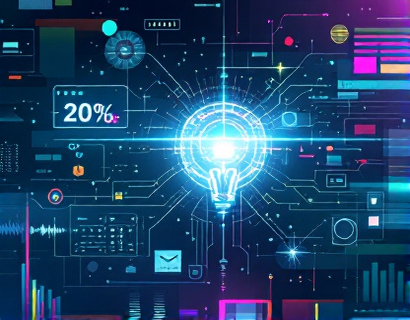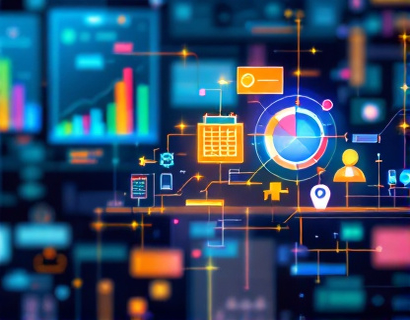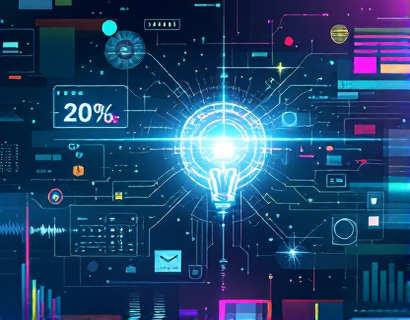Transforming Legal Assistance with AI-Driven Chat Technology
The landscape of legal assistance is undergoing a significant transformation with the integration of Artificial Intelligence (AI) and chat technology. This innovative approach is redefining how individuals and professionals access legal insights and services. The emergence of AI-driven chat interfaces offers a promising solution to the longstanding challenges of navigating complex legal systems. These platforms provide instant access to expert legal knowledge, ensuring users can make secure and informed decisions.
Understanding the Need for AI in Legal Services
The traditional legal assistance model often involves lengthy consultations, high costs, and limited accessibility. Many individuals and businesses find themselves in need of legal advice but are deterred by the barriers of time and expense. AI-driven chat technology addresses these issues by offering a more efficient, cost-effective, and accessible alternative. By leveraging advanced algorithms and natural language processing, these chat interfaces can provide immediate and accurate legal insights, bridging the gap between users and the legal expertise they need.
How AI Chat Technology Works in Legal Context
AI chat technology in legal services operates by analyzing vast databases of legal information, case law, statutes, and industry-specific regulations. When a user interacts with the chat interface, it uses natural language understanding to interpret the query and retrieve relevant data. The AI then processes this information to generate a response that is both accurate and contextually appropriate. This process happens in real-time, allowing users to receive instant insights without the delays associated with traditional legal consultations.
Benefits of AI-Driven Legal Insights
The integration of AI in legal services brings numerous benefits. Firstly, it significantly reduces the time required to obtain legal information. Users can get answers to their questions within seconds, compared to the hours or even days it might take to schedule a consultation with a human attorney. This immediacy is particularly valuable in time-sensitive situations, such as emergency legal needs or urgent business decisions.
Secondly, AI-driven chat interfaces offer a cost-effective solution. Traditional legal consultations can be expensive, often beyond the reach of individuals and small businesses. AI chat technology democratizes access to legal knowledge by providing high-quality insights at a fraction of the cost. This makes legal assistance more accessible and affordable, promoting a more equitable legal system.
Enhanced Accessibility and Convenience
Another significant advantage is the enhanced accessibility and convenience. Users can access legal insights from anywhere at any time, using any internet-enabled device. This flexibility is particularly beneficial for those in remote areas or with busy schedules who cannot easily visit a law firm. The chat interface can be integrated into various platforms, including websites, mobile apps, and even voice assistants, further expanding its reach and usability.
Improved Accuracy and Consistency
AI chat technology ensures a high level of accuracy and consistency in the legal information provided. Unlike human attorneys who may have varying levels of expertise and can sometimes provide inconsistent advice, AI systems rely on a standardized database of information. This reduces the risk of human error and ensures that users receive the most up-to-date and accurate legal insights. Additionally, AI can continuously update its knowledge base, keeping users informed about the latest legal developments and changes in the law.
Security and Privacy in AI Legal Chat Interfaces
Security and privacy are paramount in legal services, and AI chat technology is designed with these concerns in mind. Reputable platforms employ robust encryption methods to protect user data and ensure confidentiality. Access to sensitive information is strictly controlled, and user interactions are anonymized to prevent unauthorized access. Compliance with data protection regulations, such as GDPR and HIPAA, further enhances the trustworthiness of these platforms.
Moreover, AI chat interfaces can be configured to handle sensitive legal inquiries with the same level of discretion as human attorneys. Users can discuss confidential matters without the risk of their information being mishandled or exposed. This level of security is crucial for building user trust and encouraging more people to seek legal assistance through these innovative channels.
Use Cases and Applications
The applications of AI-driven legal chat interfaces are diverse and wide-ranging. For individuals, these platforms can provide guidance on a variety of legal topics, such as contract review, intellectual property rights, family law, and consumer protection. Users can get answers to their specific questions, helping them navigate complex legal issues with confidence.
For professionals and businesses, AI chat technology offers valuable insights into corporate law, employment law, tax law, and regulatory compliance. Companies can use these tools to ensure they are adhering to legal requirements, avoiding potential pitfalls, and making informed strategic decisions. The ability to quickly access expert legal knowledge can be a significant competitive advantage in today's fast-paced business environment.
Contract Review and Drafting
One of the most practical applications is in contract review and drafting. AI can analyze contract documents, identify potential risks, and suggest improvements. While AI cannot replace the nuanced judgment of a human attorney, it can significantly augment the review process, saving time and reducing errors. This is particularly useful for small businesses and startups that may not have access to in-house legal teams.
Legal Research and Analysis
Legal research is a time-consuming task that AI can streamline efficiently. Users can input specific legal questions or scenarios, and the AI will provide relevant case law, statutes, and legal precedents. This capability is invaluable for lawyers, legal researchers, and students who need to conduct thorough legal analyses. The AI can also highlight key points and summarize complex legal texts, making the information more accessible and easier to understand.
Challenges and Considerations
While AI-driven legal chat interfaces offer numerous benefits, there are also challenges and considerations to address. One of the primary concerns is the potential for misinterpretation or oversimplification of complex legal issues. AI, despite its advanced capabilities, may not always capture the full context or nuance of a legal situation. Therefore, it is essential for users to understand the limitations of AI and seek human legal advice when necessary.
Another consideration is the need for continuous improvement and updating of the AI's knowledge base. Legal frameworks and regulations are constantly evolving, and the AI must be regularly updated to reflect these changes. This requires a commitment to ongoing development and maintenance to ensure the platform remains a reliable source of legal information.
Integration with Human Legal Services
Rather than replacing human attorneys, AI-driven chat interfaces are designed to complement traditional legal services. In many cases, AI can handle initial inquiries and provide preliminary advice, freeing up human attorneys to focus on more complex and high-value tasks. This integration can enhance the overall efficiency and effectiveness of legal services, creating a synergistic relationship between AI and human expertise.
Future Prospects and Innovations
The future of legal assistance through AI chat technology is promising, with ongoing innovations set to further enhance its capabilities. One area of development is the integration of machine learning to improve the AI's ability to understand and respond to user queries over time. This can lead to more personalized and context-aware interactions, making the legal insights even more relevant and useful.
Another exciting prospect is the expansion of multilingual support, making legal assistance accessible to a global audience. This can be particularly beneficial for multinational corporations and individuals operating in different jurisdictions. Additionally, the incorporation of emotional intelligence and empathy into AI chat interfaces can make the user experience more human-like and supportive, addressing the emotional aspects of legal issues.
The Role of LegalTech
The broader field of LegalTech, which encompasses the use of technology to improve legal processes and services, plays a crucial role in the development and adoption of AI-driven chat interfaces. LegalTech companies are at the forefront of innovation, driving the creation of tools that make legal assistance more accessible, efficient, and affordable. As the LegalTech industry continues to grow, we can expect to see more sophisticated and user-friendly AI solutions emerge, further transforming the legal landscape.
Conclusion
The integration of AI chat technology in legal services represents a significant leap forward in providing accessible, accurate, and timely legal insights. By addressing the limitations of traditional legal assistance, these platforms empower individuals and professionals to make informed decisions with confidence. While there are challenges to overcome, the potential benefits and innovations in this space are vast. As the legal industry embraces these technological advancements, we can look forward to a future where legal assistance is more democratized and effective than ever before.










































